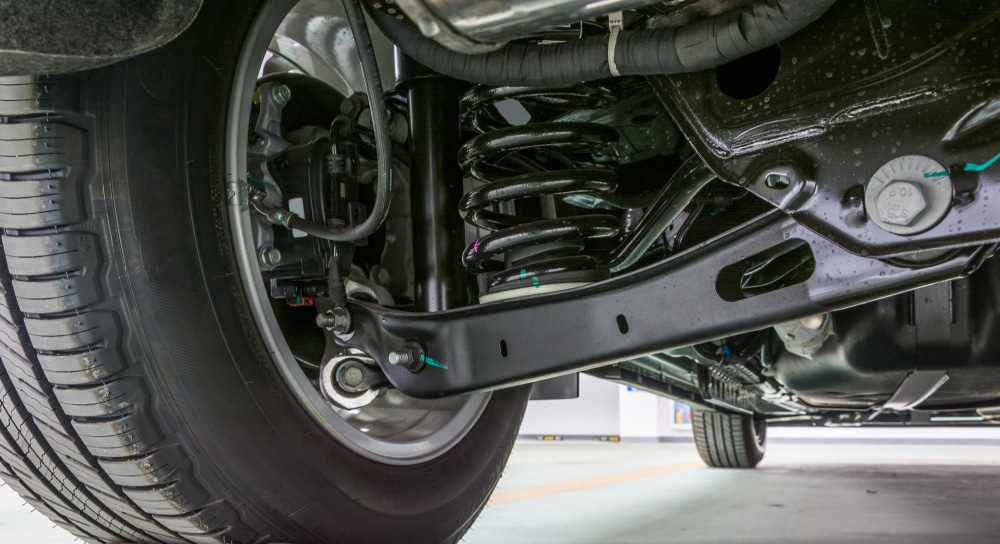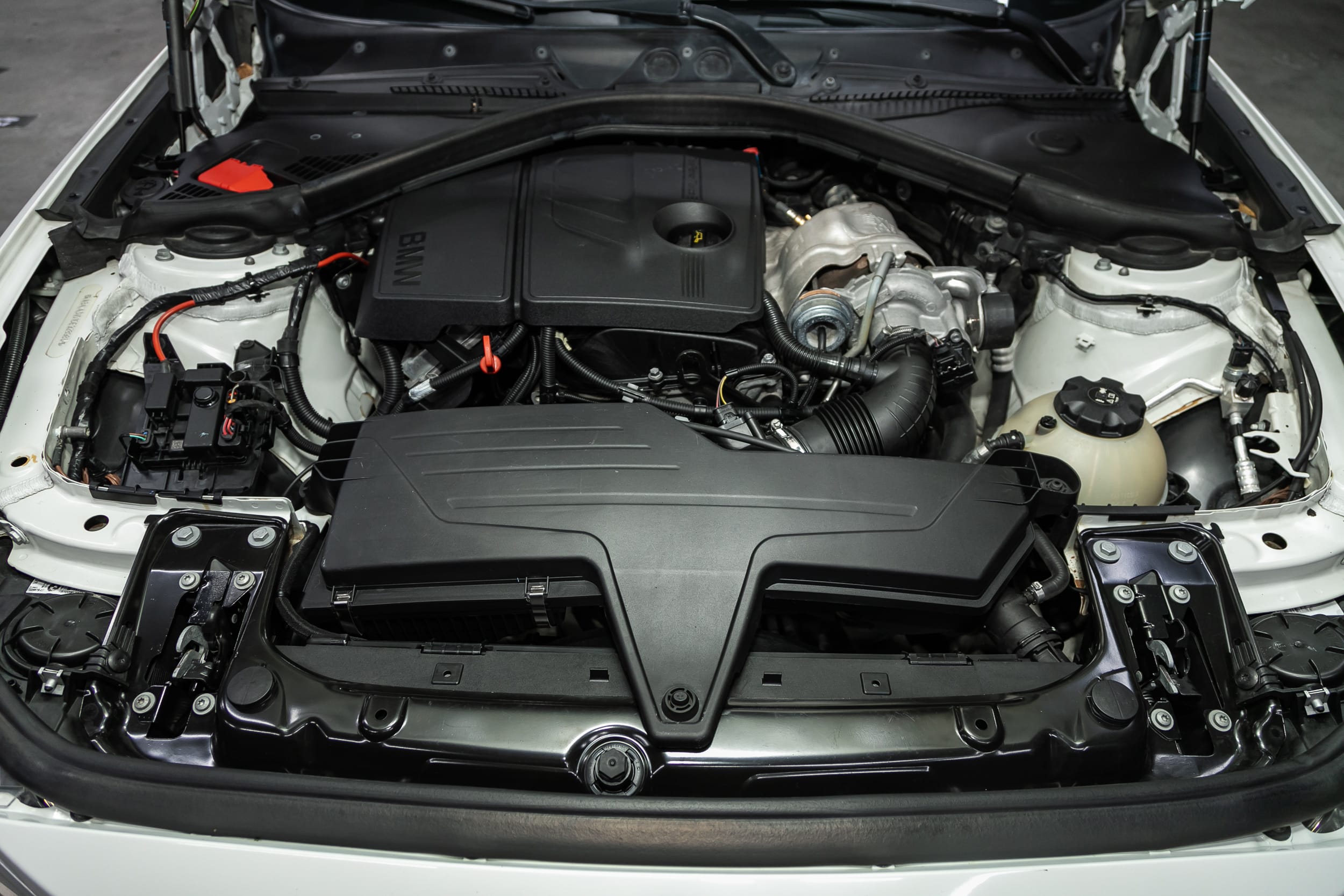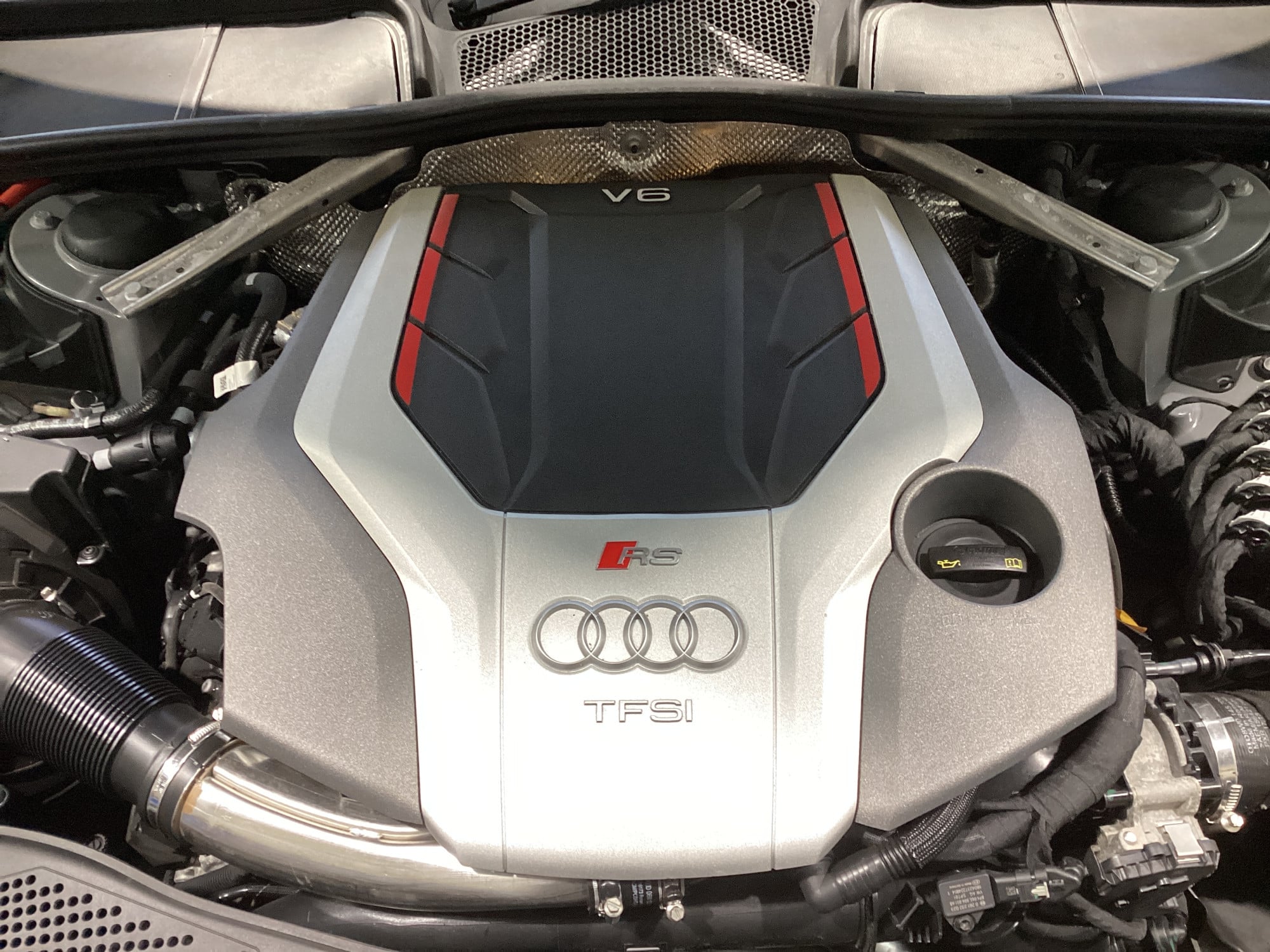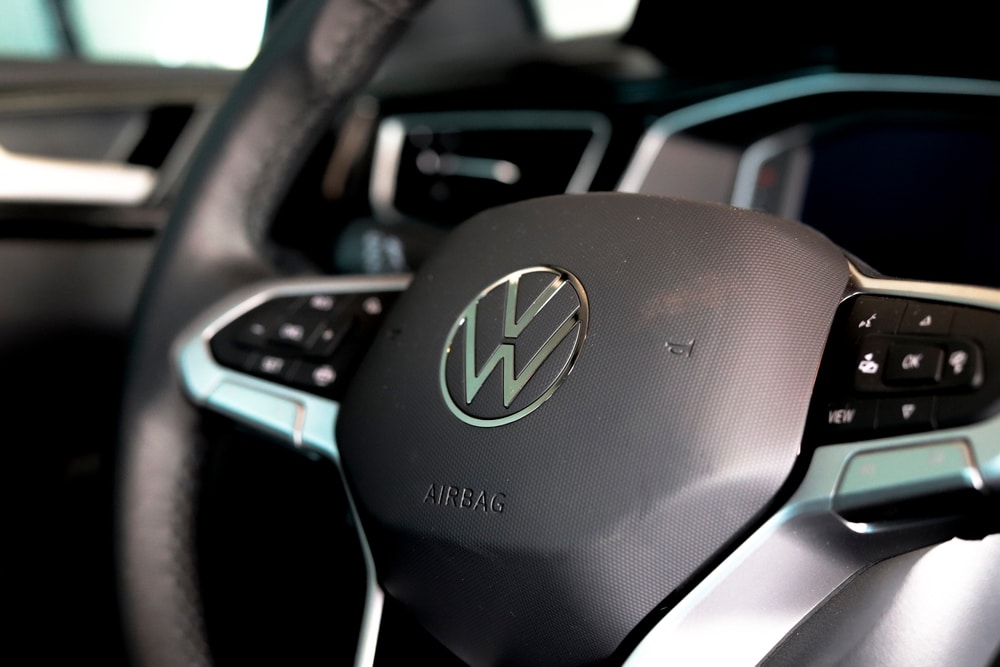Audi Suspension Maintenance
Known for their high-end, tech-filled luxury vehicles, Audi manufactures premium cars that road users up and down the country love. In spite of this, these premium cars still require regular maintenance of their suspension systems.
Your Audi’s suspension effectively absorbs all bumps and uneven road surfaces. Eventually, however, your Audi’s suspension components will wear down and you will have to replace them.
This blog will discuss why suspension maintenance is important, how suspensions work, how to identify suspension issues, the risks of driving with a defective suspension and how our team of skilful professionals at Quality Care Service can assist you whenever an Audi suspension issue arises with your vehicle.
Read on to learn more about your Audi suspension system.
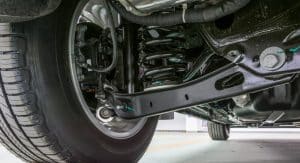
Why It Is Important to Maintain the Audi Suspension System
You need a suspension system that can absorb road impacts for your Audi to perform well. As well as providing a comfortable ride, it also maintains handling and keeps all four wheels and tyres in contact with the road.
Keeping your Audi suspension in good shape will keep you stable when braking and turning corners so if your suspension is not properly maintained, you may experience poor handling, low fuel economy, uneven tire wear, and poor safety.
Our Audi experts at Quality Car Service are always ready to inspect your suspension system and keep it in excellent working condition. Book an appointment today with our friendly reception team.
The Signs of a Malfunctioning Suspension System
Early detection of Audi suspension problems is essential for ensuring safety and preventing further damage.
Among the most common Audi suspension problems are:
Uneven Tyre Wear: If one tyre or set of tyres wears out faster than the others, it may indicate suspension trouble. It is often caused by a misalignment or a problem with the shock absorbers.
Rough Drive: If your Audi rides rough and vibrates a lot, it may have worn or damaged shock absorbers or struts.
Pulling To One Side: Due to alignment or suspension issues, your Audi might pull to one side when driving on a straight road.
Noticeable Bouncing: Good working suspension systems should provide controlled and minimal bounce after bumps. If your Audi bounces excessively, it may be due to worn shocks or struts.
Unusual Noises: Unusual noises might indicate worn suspension components or loose parts in rough terrain or during turns.
Steering Problems: Problems with the suspension can affect power steering. If the steering is stiff or difficult to control, it may be time to check the suspension.
Leakage of Fluid: There might be a leak in your Audi’s shocks or struts if you notice damp or oily spots under your vehicle. In addition, leaking fluid can affect performance.
Visual Damage: The suspension components of your Audi should be examined for visible damage, such as bent or broken control arms, sway bars or damaged bushings.
Height Deficiency: In case one corner of your Audi appears lower than the others, the suspension system on that side may be malfunctioning.
Warning Lights: In modern Audi models, dashboard warning lights are triggered when the suspension system is malfunctioning. If your dashboard displays any warning lights, have your vehicle inspected right away.
When you notice any of these symptoms, we recommend you call our team of qualified experts at Quality Car Service. In order to ensure your vehicle’s safety, handling and overall performance, suspension issues should be addressed as soon as possible.
Moreover, regular inspections and maintenance can prevent more serious problems from developing.
Here’s What You Need to Know About the Audi Suspension System
An Audi vehicle’s suspension system contributes to its performance and handling. Across their range of vehicles, Audi offers different suspension types based on the model and driving experience.
In the Audi A8, Audi has introduced a system called “Predictive Active Suspension”. As a result of this advanced system, each wheel has its own actuator that adjusts the suspension springs independently.
Consequently, the car’s ride height can be actively managed, ensuring a comfortable ride on a variety of terrains. In addition, this system can adjust the Audi’s body height by up to 85mm every 0.5 seconds.
The Front Suspension of Audi Vehicles Comes in Several Types:
- MacPherson Strut: The MacPherson Strut can be found in models such as the Audi TT despite being less common in Audi vehicles. Because of its simple and space-efficient design, it is ideal for compact vehicles.
- Double-Wishbone: With this suspension type, models such as the Audi R8 and Audi Q7 offer precise handling and independent wheel movement. Moreover, in order to enhance comfort, the Audi Q7 is equipped with air springs.
- Multi-Link or Five-Link Suspension: Most Audi suspensions use four control arms per side. This configuration allows camber, caster, and toe to be fine-tuned, improving handling and stability, especially on larger models, such as the A6.
The Rear Suspension of Audi Vehicles Comes in Several Types:
- Double-Wishbone: A high-performance model such as the Audi R8 is equipped with this suspension type, which allows for independent wheel movement.
- Four-Link: As a result of the upper links and lower trailing arms of this set-up, axle movement and articulation are controlled on models such as the Audi TT Quattro.
- Self-Tracking Trapezoidal-Link: In addition to providing high torsional and bending stiffness, this configuration isolates vibrations from the body of the car. It’s typically found in larger models such as the Audi A6.
Audi’s Drive Select system enables drivers to customise the suspension dynamics and performance of their vehicle.
In Dynamic mode, the throttle response is sped up, gear shifts occur at higher RPMs, and steering is stiffened. For a smoother ride, Comfort mode softens the suspension and steering, while Auto mode balances comfort and performance. Individual settings are also available for personalised settings.
If you have questions about your Audi’s suspension system or are experiencing suspension issues, we can assist you. Our Audi suspension service technicians and repair specialists at Quality Car Service are experts in the field. Maintaining the performance and handling characteristics of your Audi is our speciality.
What Causes Suspension Problems?
Over time, the suspension system components in your Audi can wear out. There are a variety of parts in high-mileage vehicles that wear out and become ineffective, including wheel bearings, control arm bushes, tie rods, ball joints, and sway bar links.
If you drive your Audi hard, such as braking sharply and accelerating quickly, the problem is exacerbated. It is also possible for Audi suspensions to break down over time due to off-roading and uneven surfaces. This is especially true if you live in an area with unpaved or pothole-filled roads.
Audi suspension systems can be serviced in a wide range of ways. In addition, your service manual may specify when suspension components should be replaced.
When you have a suspension issue, our Audi technicians at Quality Car Service will analyse the underlying cause. Our team will also inspect related parts for damage and leave you with peace of mind.
It Is Dangerous to Drive an Audi With a Faulty Suspension System
The suspension system of your Audi is extremely important, and when it is compromised, driving it becomes extremely dangerous. These faulty components within the system may cause you to experience the following:
Damaged Struts: Struts that are damaged make driving dangerous. In addition to absorbing road bumps, struts contribute to steering and protecting other suspension parts. Breaking a strut can cause discomfort, hamper handling, or even structural damage.
Damaged Springs: In the event that your springs are damaged, you should not drive. As a result of sagging or noisy springs, the vehicle will ride rough and lack control, especially during emergency situations.
Damaged Control Arms: Driving with damaged control arms requires extra caution. Consequently, suspension articulation and alignment issues may result in handling issues and accelerated tyre wear.
Damaged Shock Absorbers: When your shock absorber is broken, you can still drive, but it will be uncomfortable and affect your control, especially at high speeds.
At Quality Car Service, we are a certified Audi garage that can maintain, service, repair and replace Audi suspension systems. Get in touch with us today if you need a safe and reliable fix.
